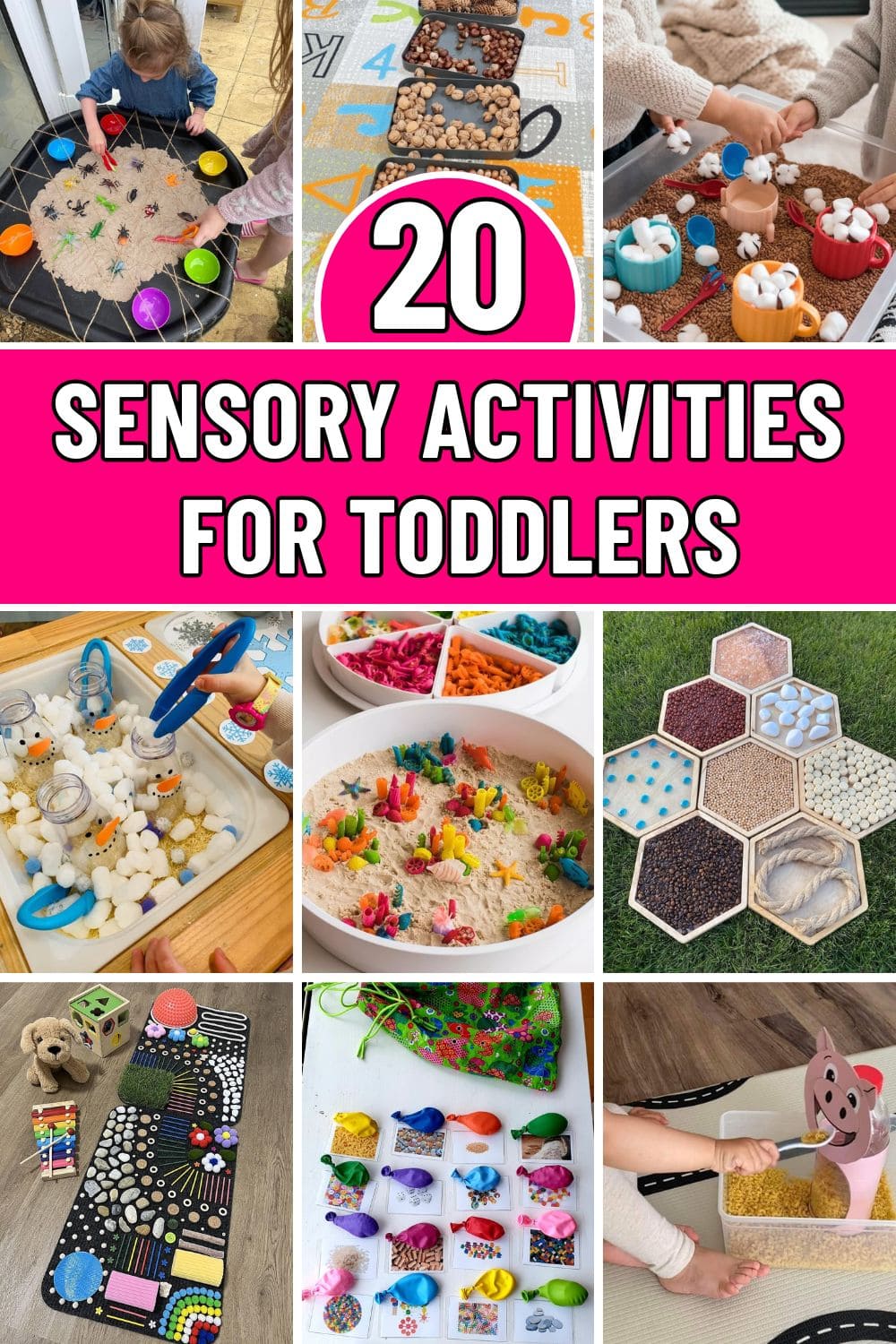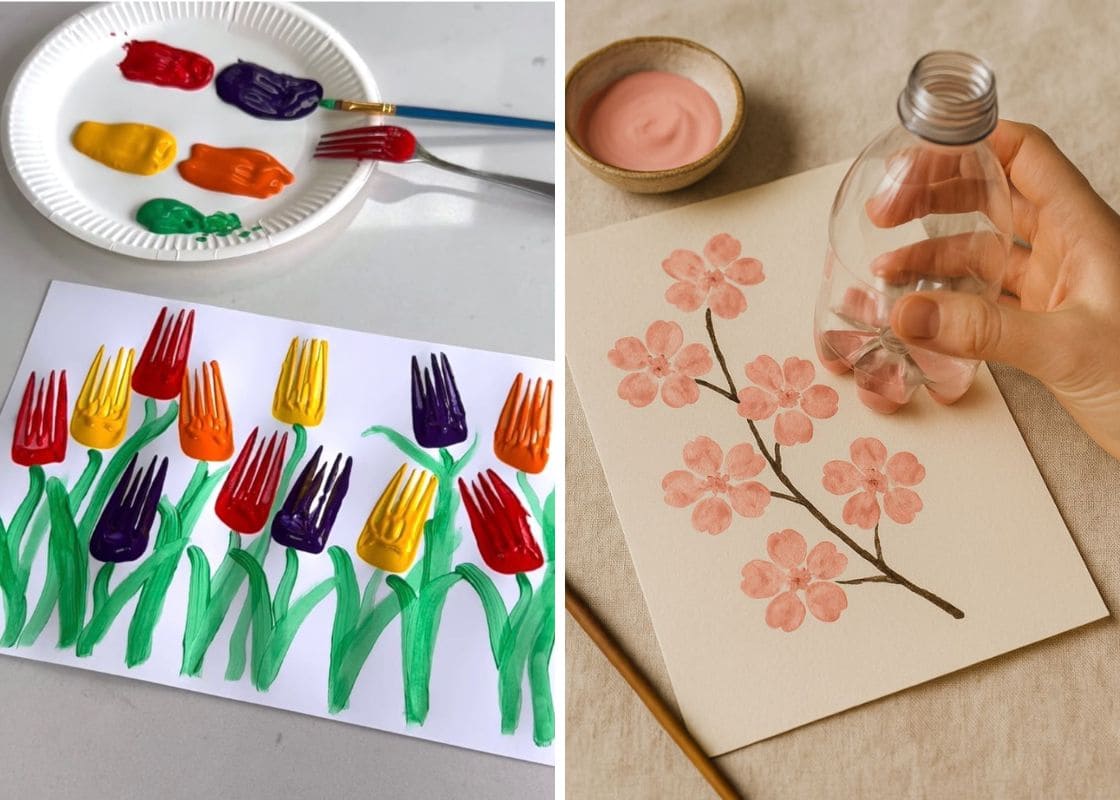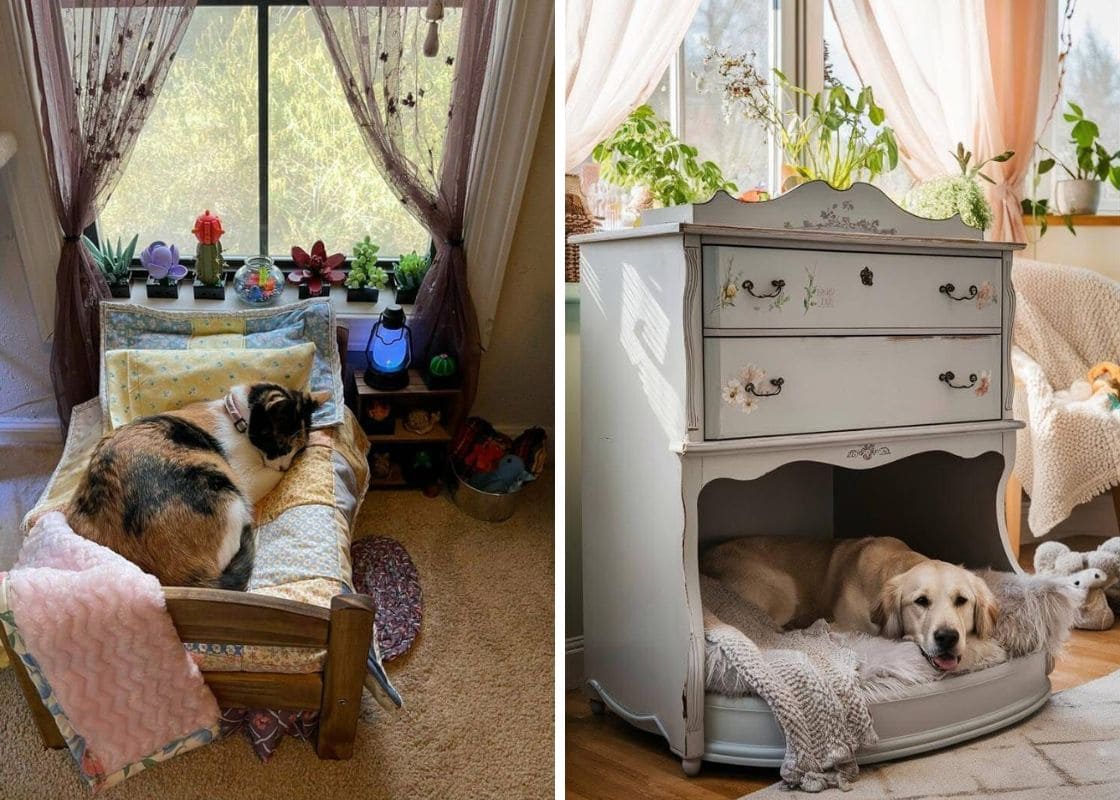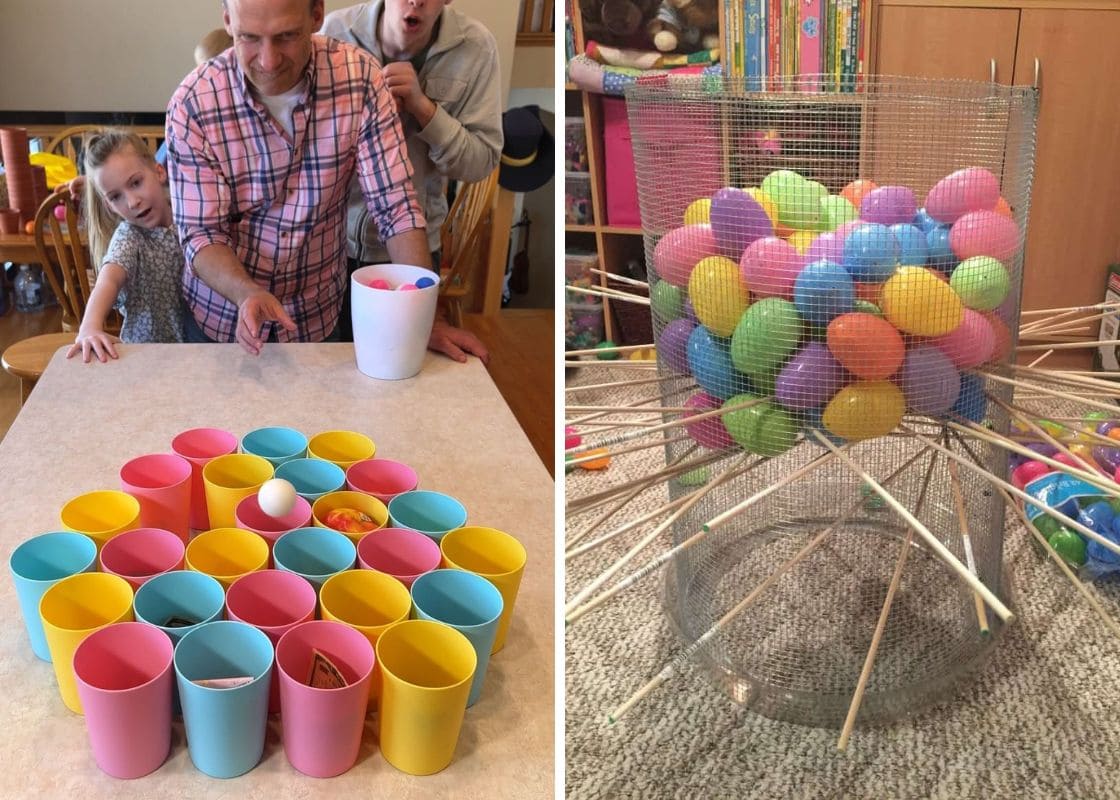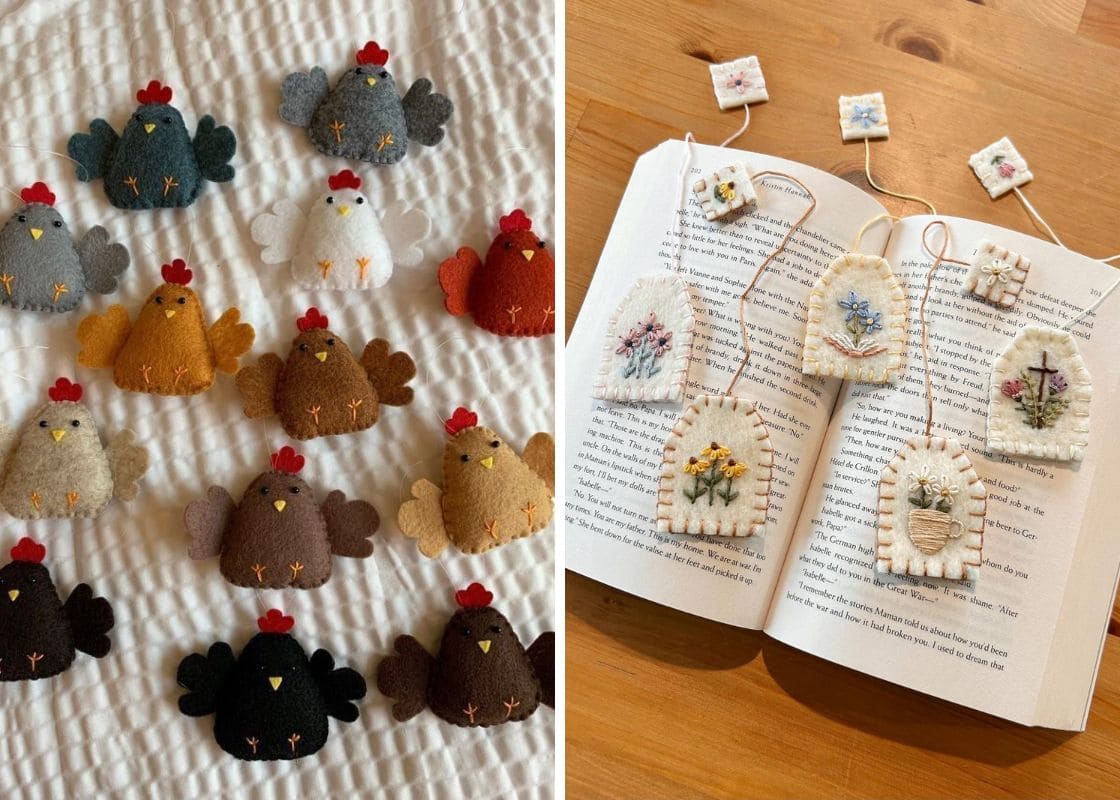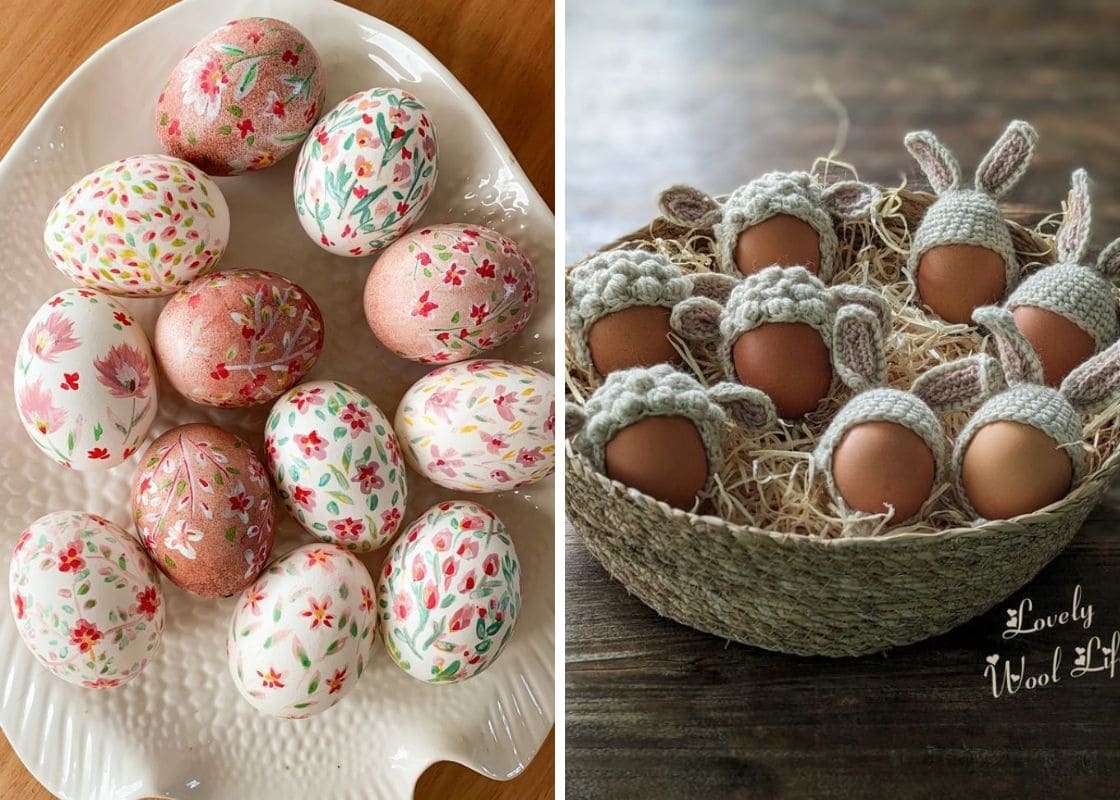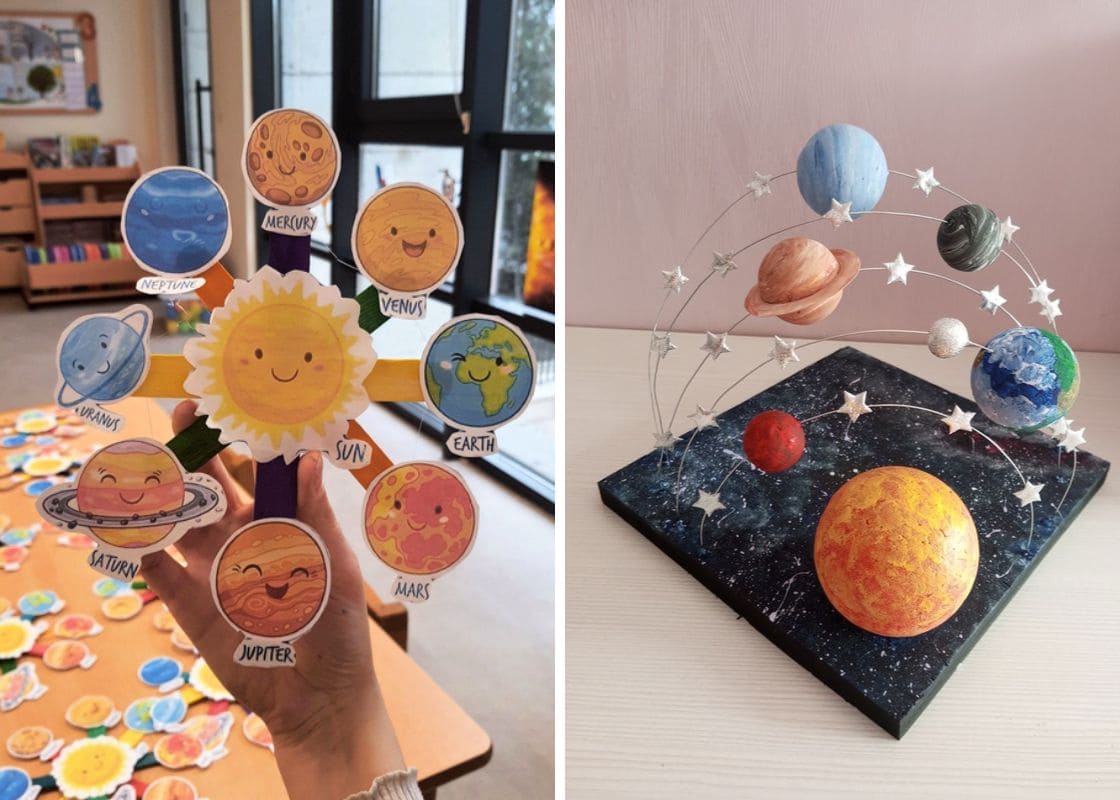Toddlers learn best through hands-on play, and sensory activities are a perfect way to spark that curiosity.
These fun DIY ideas turn everyday materials into creative tools for exploration.
Whether you’re looking for rainy-day play or simple educational fun, these sensory activities bring learning to life in the most joyful way.
#1. Tactile Discovery Pathway Mat
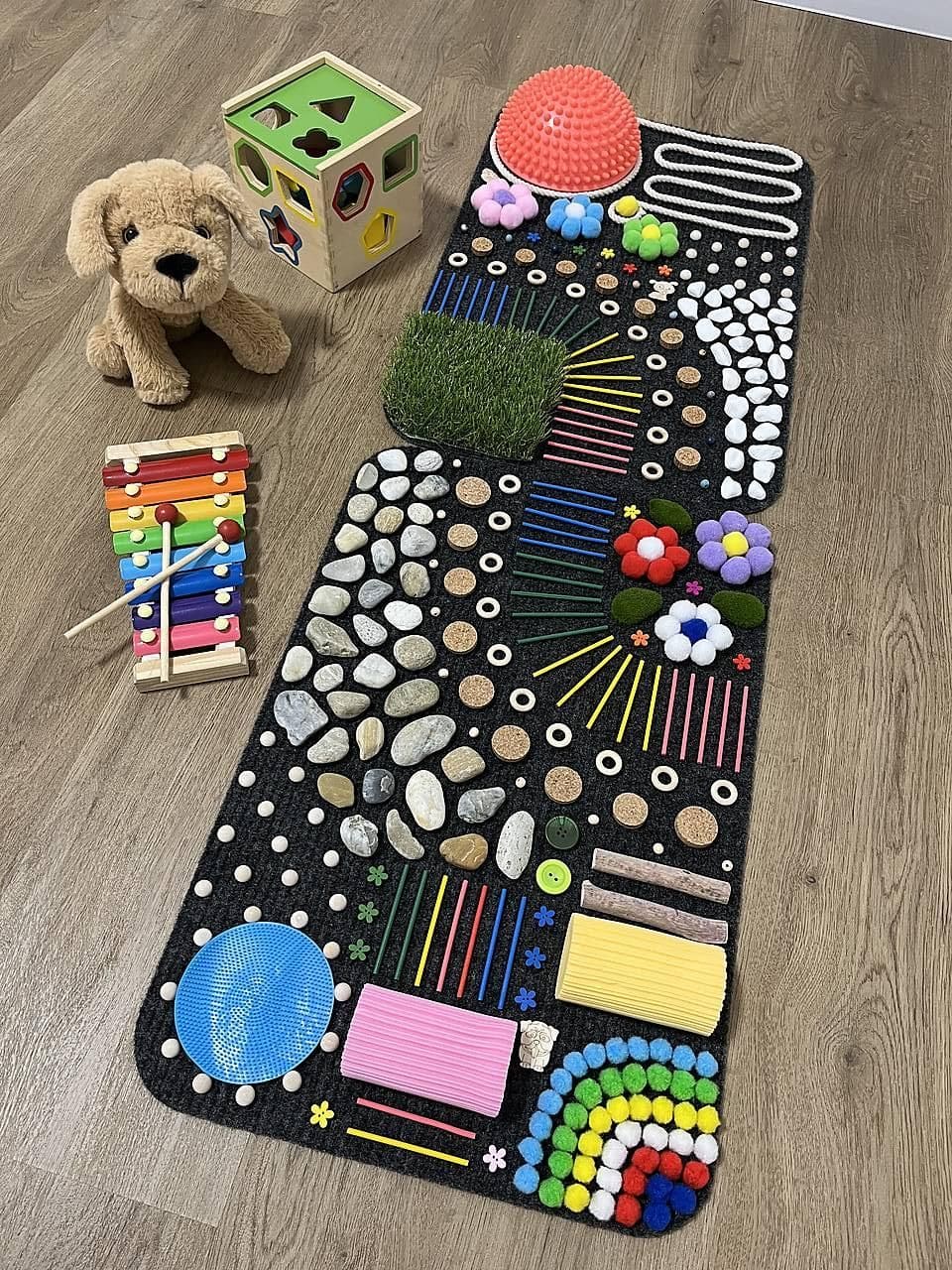
This mat transforms everyday textures into an adventure for little explorers.
Each section offers a new sensory challenge from smooth pebbles and soft pom-poms to bumpy corks and springy grass patches.
As children walk, crawl, or press their hands along the path, they engage touch, balance, and focus in a playful way.
#2. Build-A-Snowman Sensory Bin
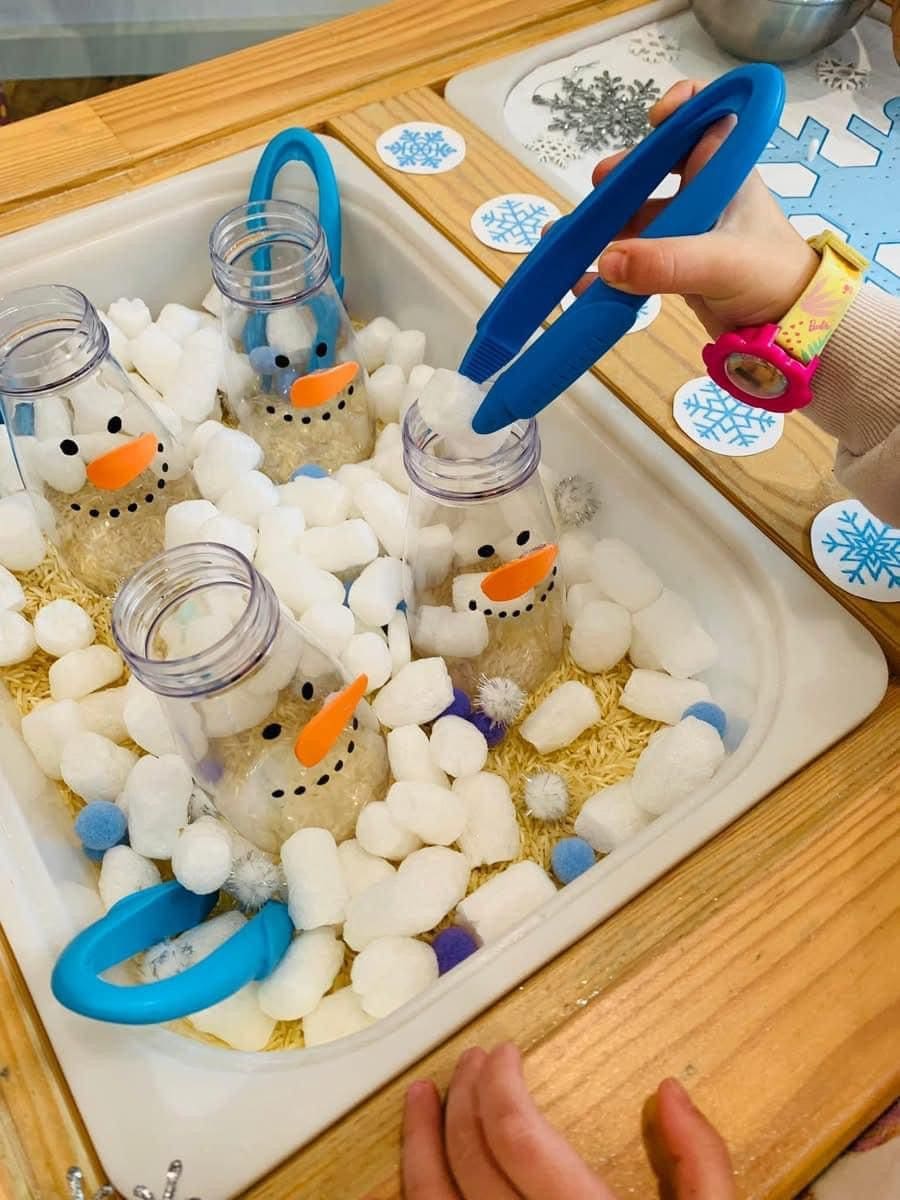
This cheerful snowman sensory bin brings a touch of frosty fun indoors.
Children can scoop, grab, and fill snowman jars using chunky blue tongs and soft snowballs made from cotton and packing peanuts.
The bright orange noses and playful faces spark imagination while encouraging storytelling and laughter.
Plus, the mix of textures, from squishy to crunchy, adds a wonderful sensory contrast that keeps kids curious and calm.
#3. Sensory Texture Discovery Basket
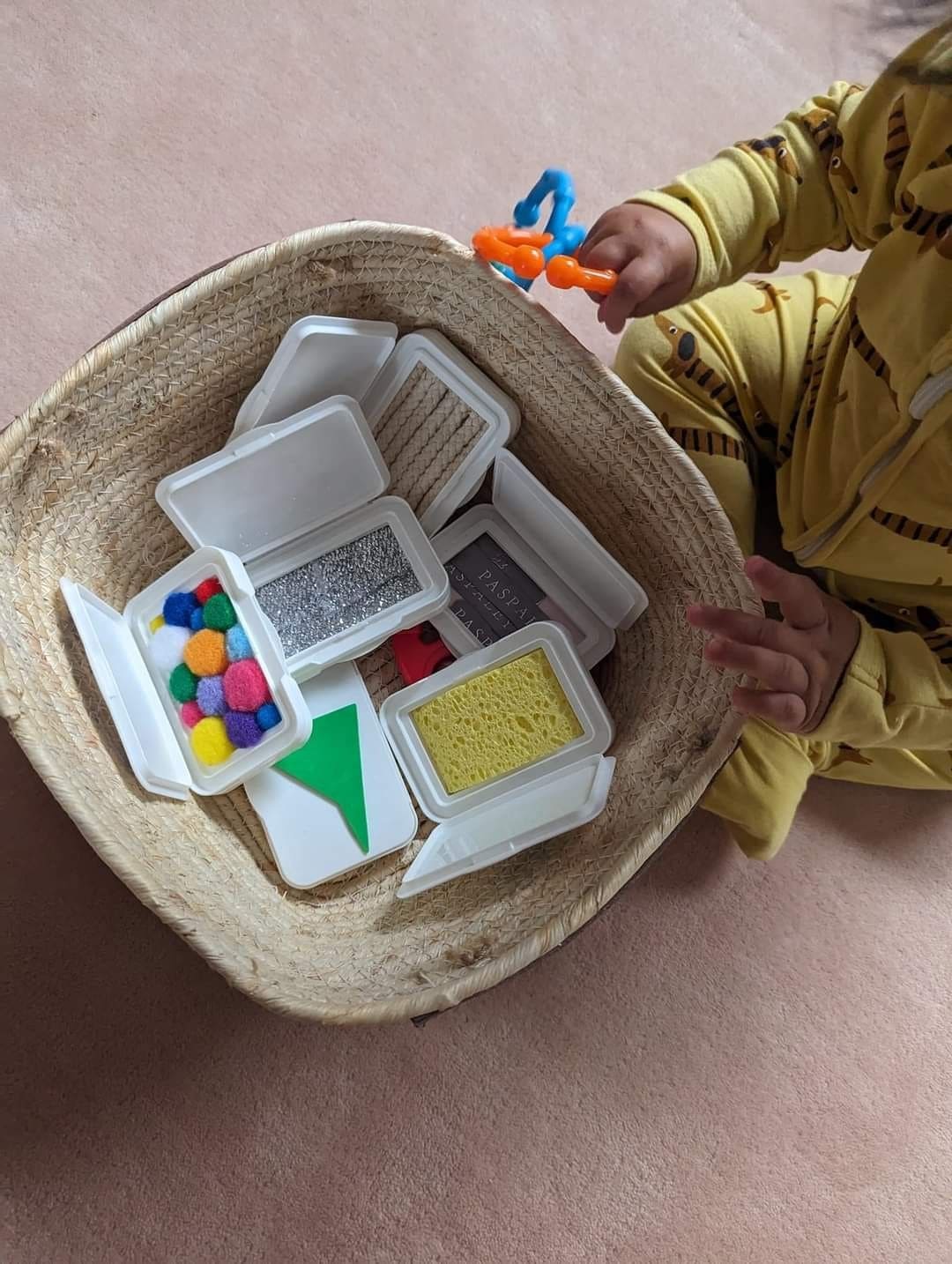
Wow, this basket turns everyday items into a world of touchable fun.
Each small container hides a new surprise including soft pom-poms, bumpy sponges, smooth plastic, or rough rope encouraging kids to explore different sensations.
The simple open-and-close design keeps things tidy while helping develop fine motor skills.
#4. Underwater Pasta Coral Reef
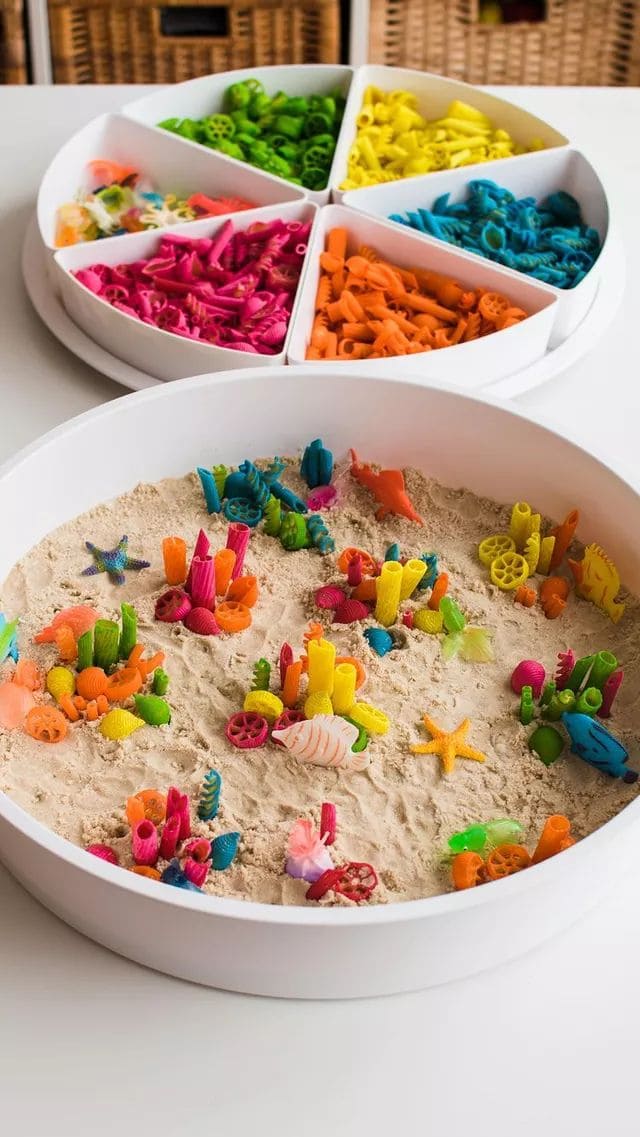
For a splash of color and creativity, this Underwater Pasta Coral Reef sensory bin turns ordinary pasta into a sea of imagination.
Kids can sort, stack, and arrange brightly dyed pasta pieces in sand, mimicking coral, sea plants, and ocean creatures.
Specially, the mix of textures from smooth shells to ridged rotini creates a deeply tactile experience that strengthens fine motor skills and hand-eye coordination.
As little hands build their ocean world, they explore patterns, balance, and storytelling through play.
#5. Nature Walk Sensory Path
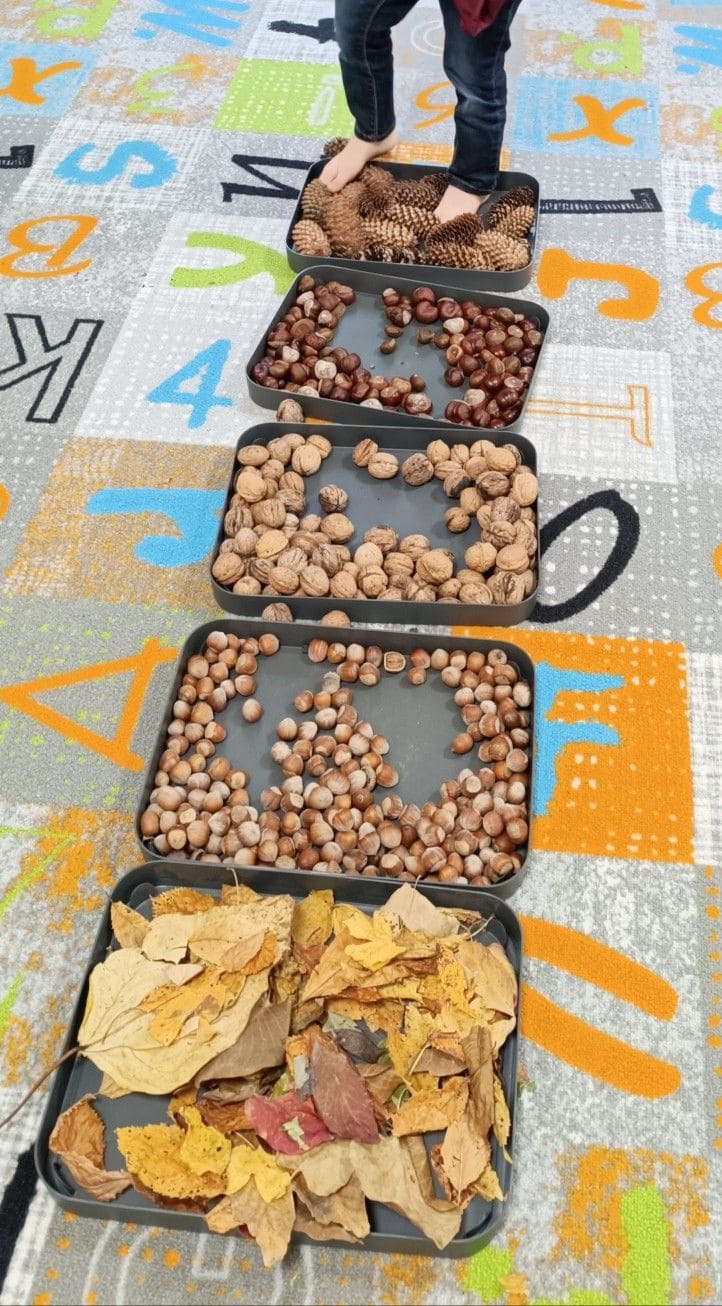
This path brings the outdoors right under your feet.
Each tray offers a different texture like crunchy leaves, smooth nuts, bumpy shells, and prickly pinecones creating a full sensory experience for little explorers.
As children walk barefoot from one tray to the next, they feel the variety of surfaces, helping them develop balance, awareness, and coordination.
#6. Mystery Texture Balloon Match
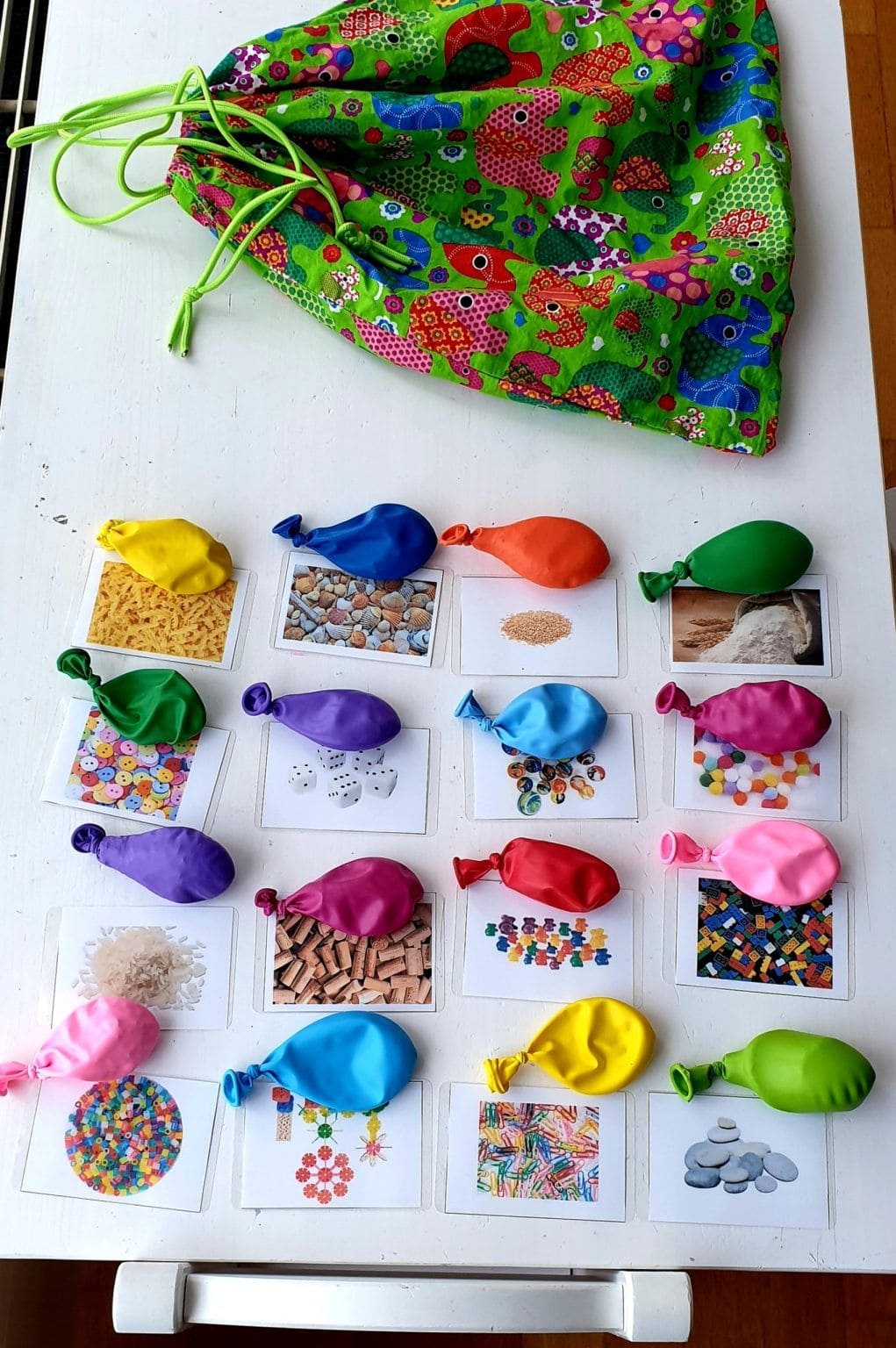
You can see each balloon hides a different filler like buttons, rice, beads, or sand and kids must squish, squeeze, and feel to guess what’s inside.
The colorful cards help guide them, showing photos of possible textures to match.
It’s a fantastic way to build sensory vocabulary and observation skills while introducing concepts like comparison and memory.
#7. Five Senses Caterpillar Wall
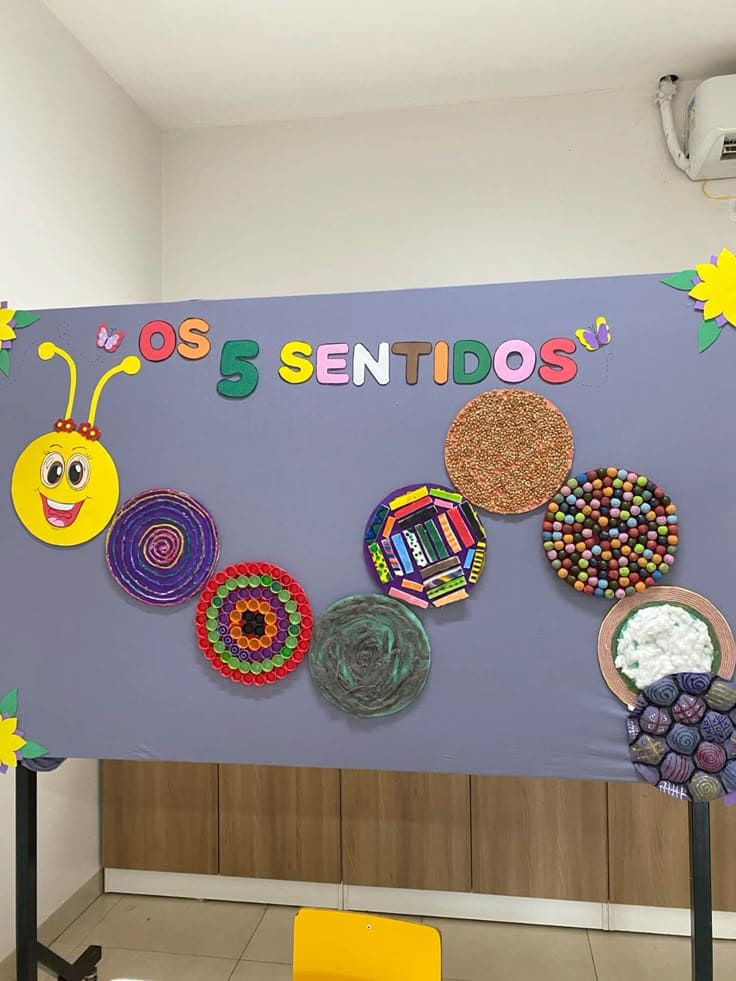
What a joyful way to explore the magic of the five senses! This colorful caterpillar display transforms learning into an interactive experience.
Each circular segment features a unique texture or material encouraging children to touch, observe, and talk about how each one feels or looks.
Bonus, the friendly caterpillar face adds warmth and fun, making it perfect for classroom sensory lessons.
#8. Touch and Feel Hand Texture Board
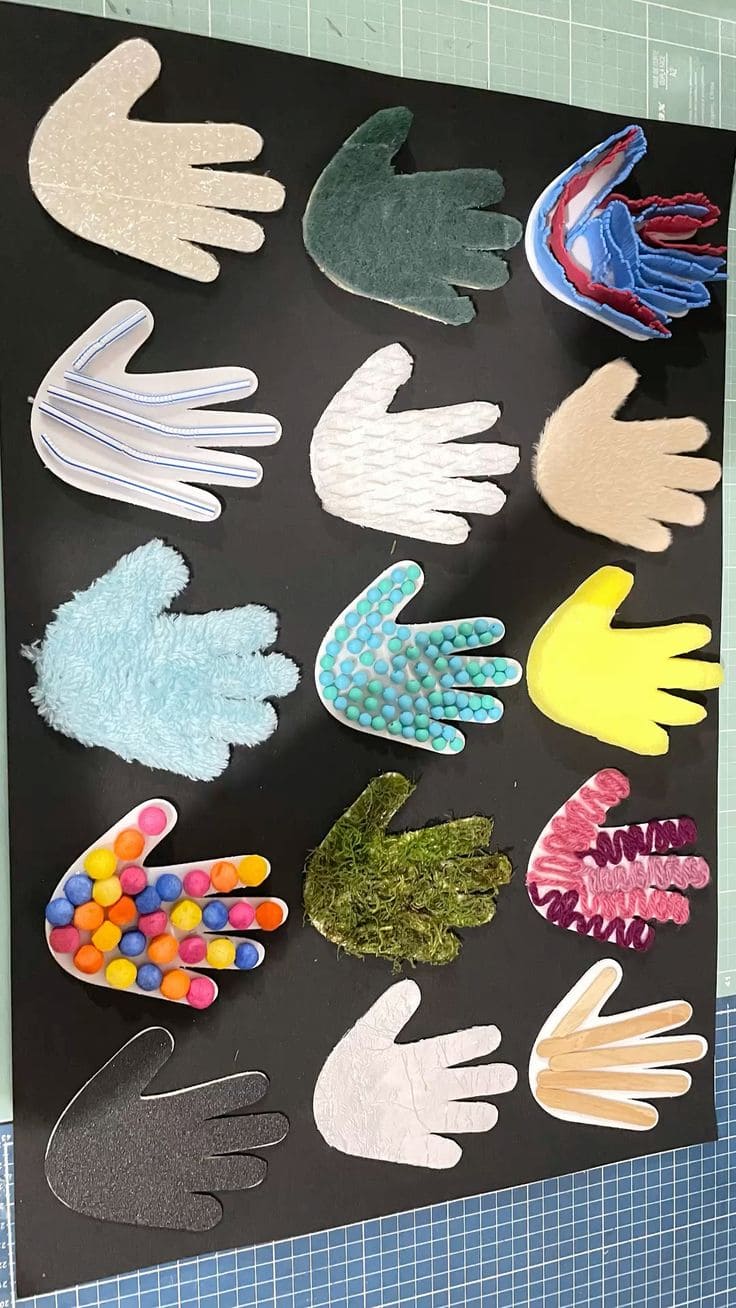
I think this hand texture board is a brilliant way to teach sensory awareness through creativity.
Each handprint is covered in a unique material like soft fur, rough sandpaper, fuzzy yarn, or bumpy pom-poms giving kids a chance to explore textures in a fun, hands-on way.
As they touch and describe what they feel, they develop language skills, sensory processing, and curiosity about the world around them.
#9. Peek-and-Touch Texture Board
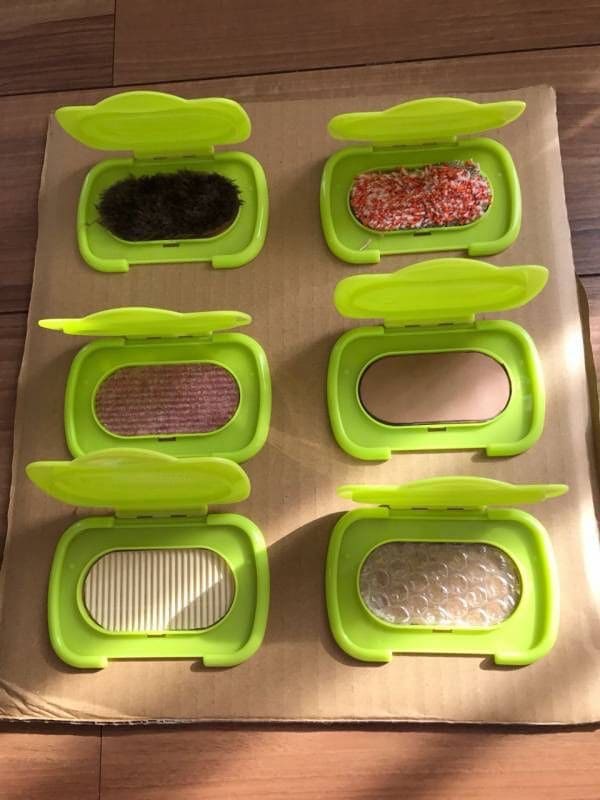
As simple as it is clever, this board sparks curiosity and fine motor development through surprise and exploration.
Each flip-top container hides a different texture – soft fur, smooth plastic, bumpy bubble wrap, or rough cardboard inviting children to lift, feel, and describe what they find.
The tactile variety encourages language development and sensory awareness while turning touch into a guessing game.
#10. Cozy Cocoa Sensory Bin
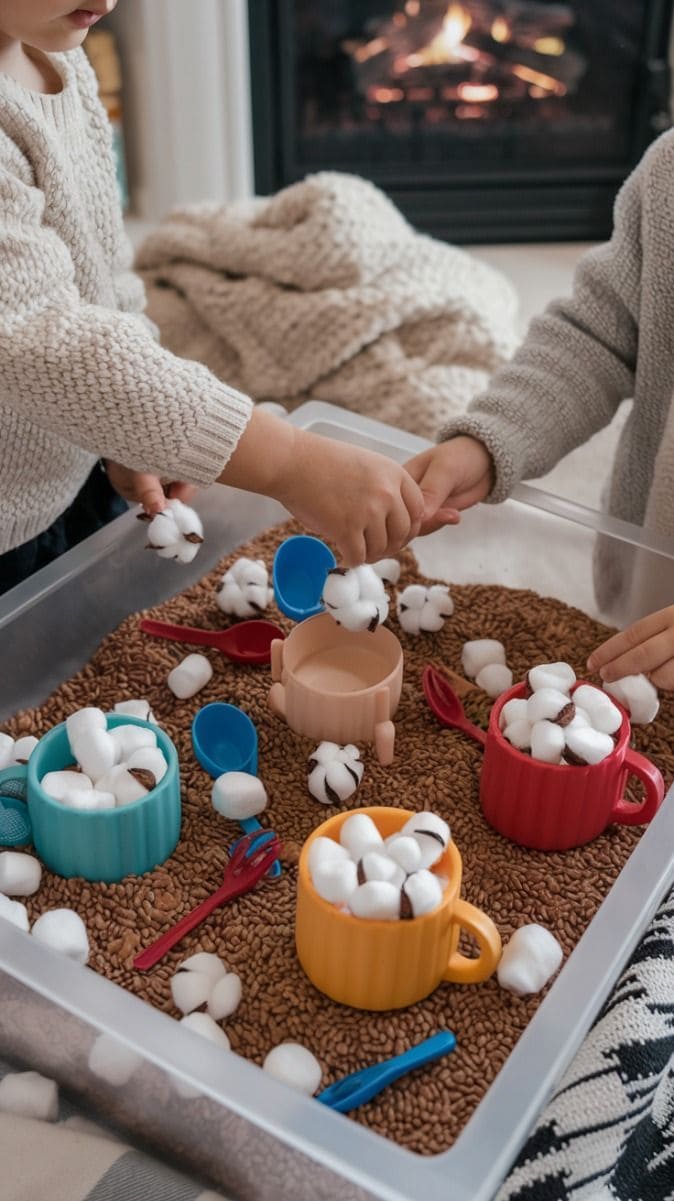
There’s something irresistibly comforting about this sensory bin.
Set against a warm fireplace glow, kids can scoop, pour, and mix cocoa using textured materials like lentils, cotton balls, and colorful cups.
Each spoonful mimics the act of making a warm drink, letting children engage their imagination and fine motor skills.
#11. Feed the Pig Sensory Bin
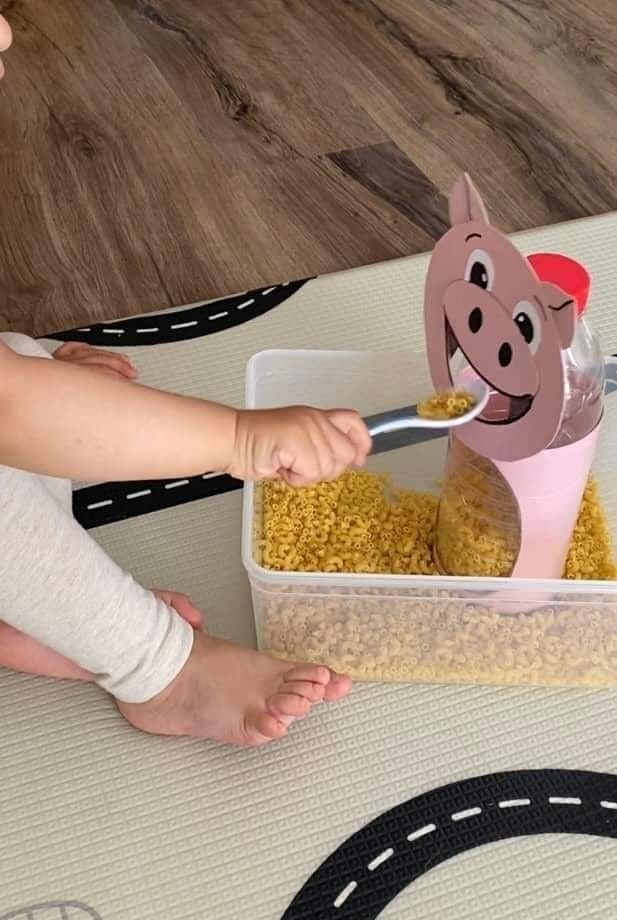
You can see a simple bin of dry pasta becomes an engaging activity as little hands scoop and pour food into the pig’s mouth.
It encourages hand-eye coordination, grip strength, and patience, all while sparking giggles
. The playful pig design adds a storytelling element, turning learning into imaginative fun.
#12. Bug Rescue Sensory Bin
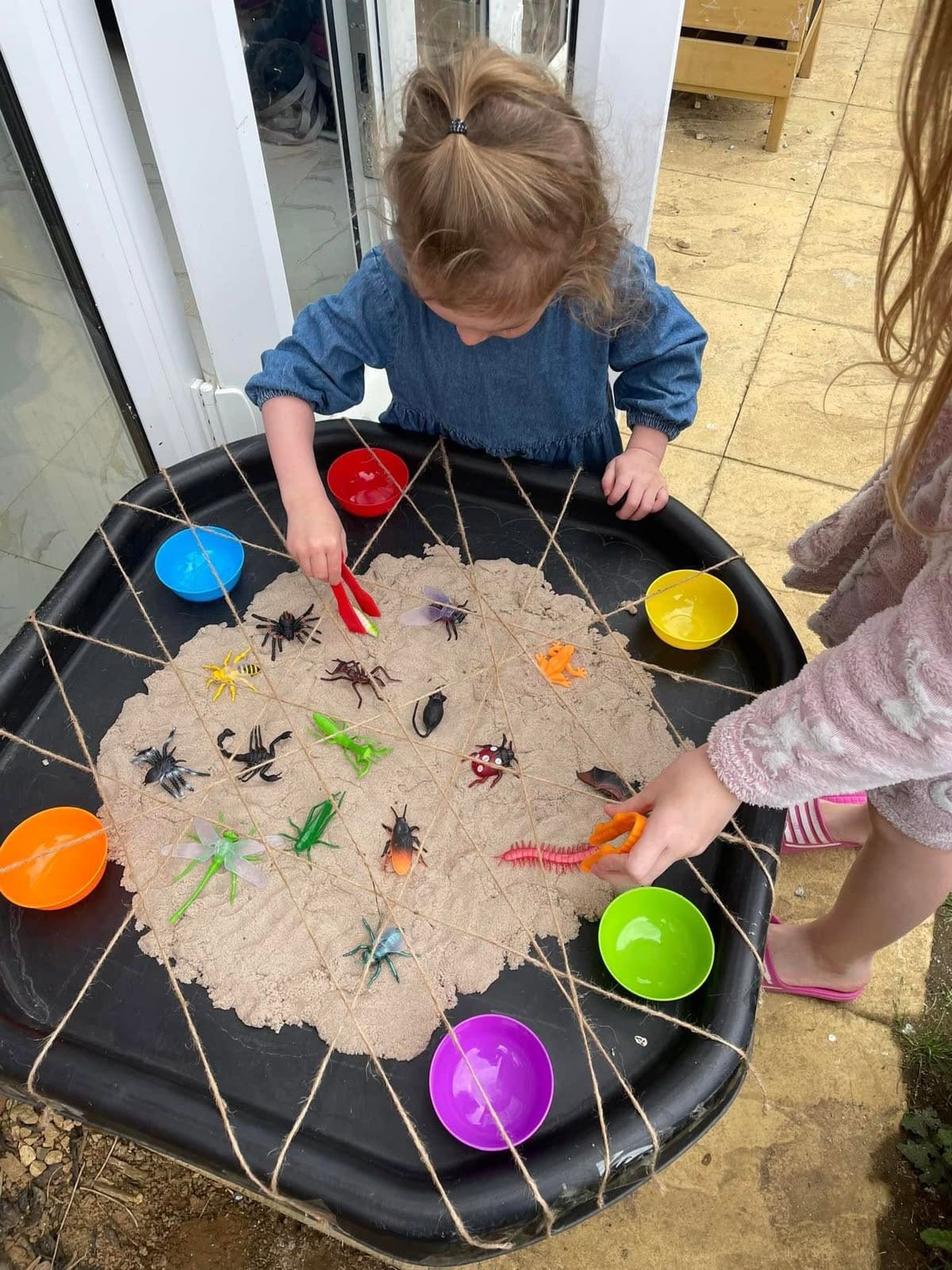
Children get to play the role of tiny adventurers, using tongs to carefully rescue colorful bugs trapped beneath a web of twine.
The soft sand underneath offers a calming, tactile experience as little fingers dig and explore.
This engaging setup not only strengthens fine motor skills but also encourages problem-solving and hand-eye coordination.
#13. Walk-Through Sensory Car Wash
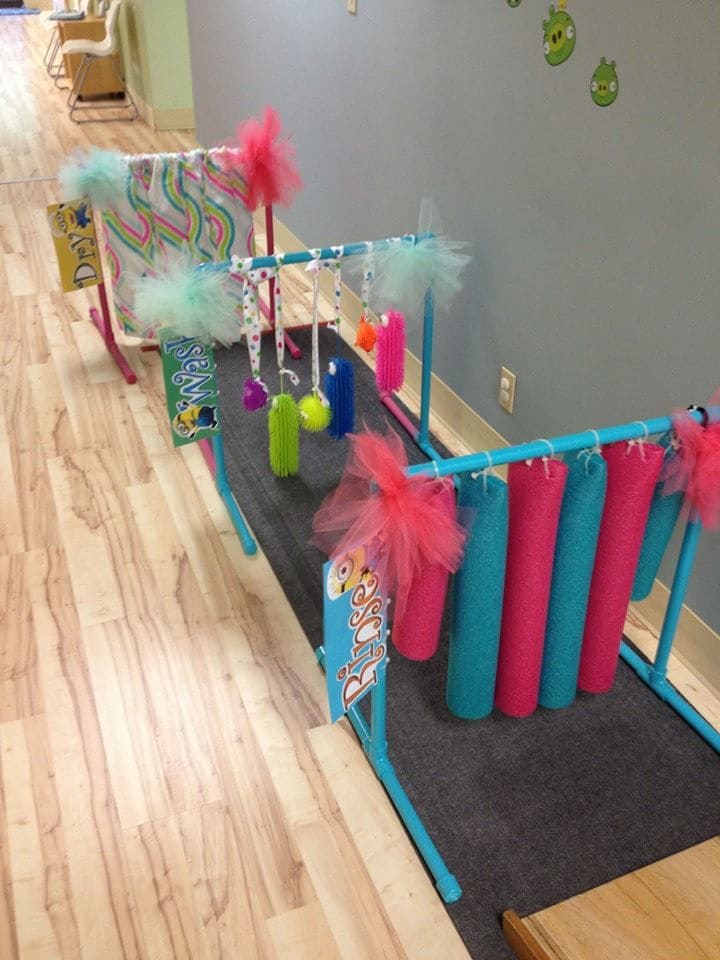
Designed with hanging pool noodles, soft fabrics, and textured ribbons, it creates a playful tunnel where kids can walk, crawl, or dance through a world of touch.
Each section stimulates different senses, gentle brushes mimic rain, squishy noodles add resistance, and colorful textures spark curiosity.
It’s an excellent way to support sensory integration and gross motor development while encouraging imaginative play.
#14. Touch-and-Feel Texture Board
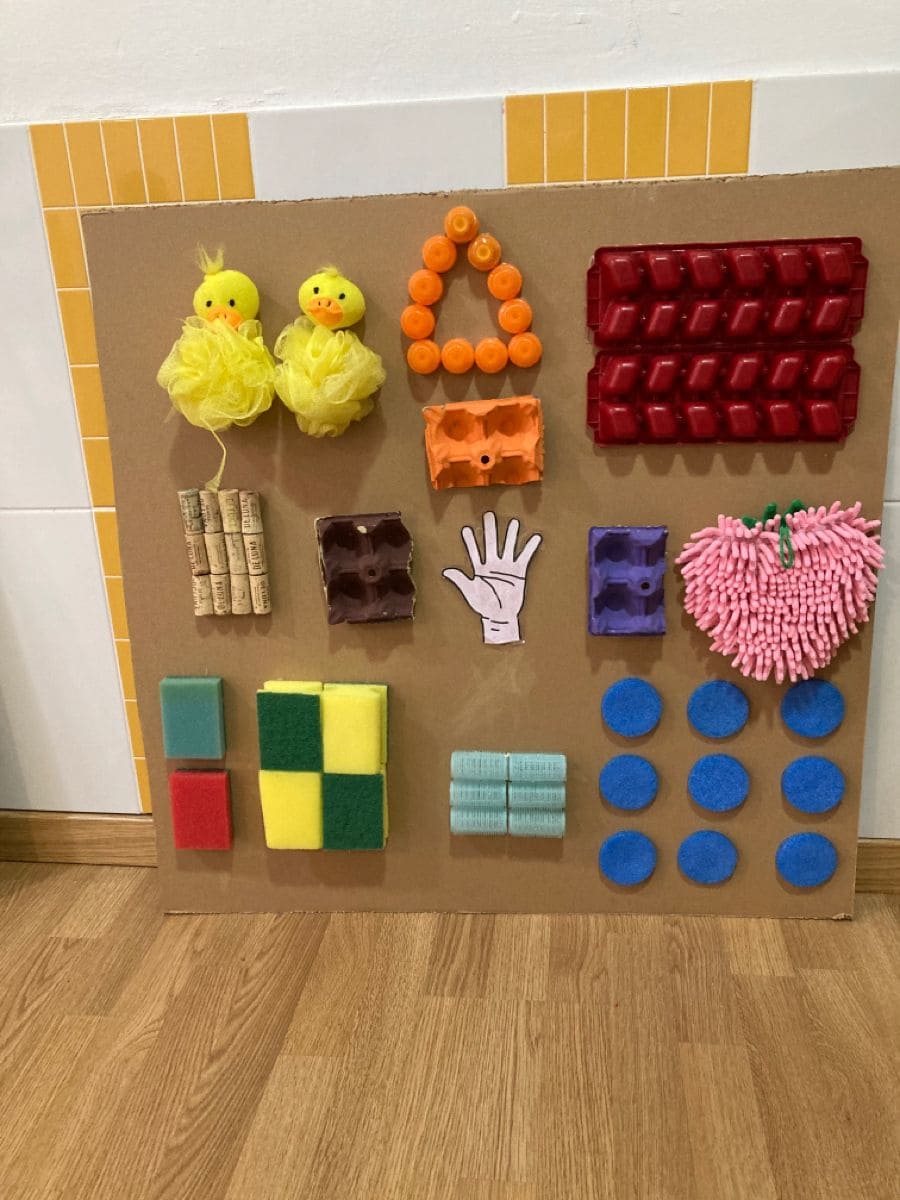
This interactive texture board transforms everyday materials into a world of sensory discovery.
From soft sponge squares and fuzzy mop fibers to bumpy egg cartons and cork clusters, each section invites curious fingers to explore new sensations.
The variety of colors and shapes sparks visual interest while helping children build tactile awareness and descriptive vocabulary.
Also, little learners can press, squeeze, and trace the materials, strengthening fine motor control as they play.
#15. Textured Sensory Bean Bags
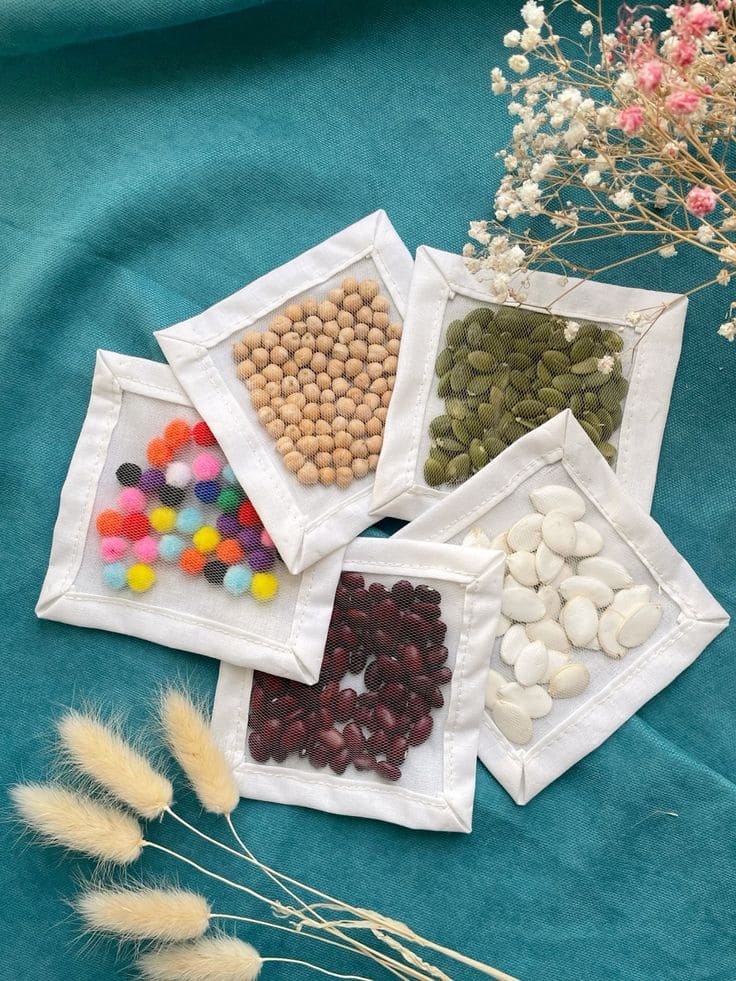
These bags are a wonderful way to combine touch and exploration in a simple, hands-on activity.
Each fabric pouch holds different materials like beans, seeds, pom-poms, or chickpeas giving children a variety of textures to squeeze, shake, and compare.
The transparent mesh lets them see what’s inside while feeling the unique shapes and weights through the fabric.
#16. Nature Texture Sensory Tiles
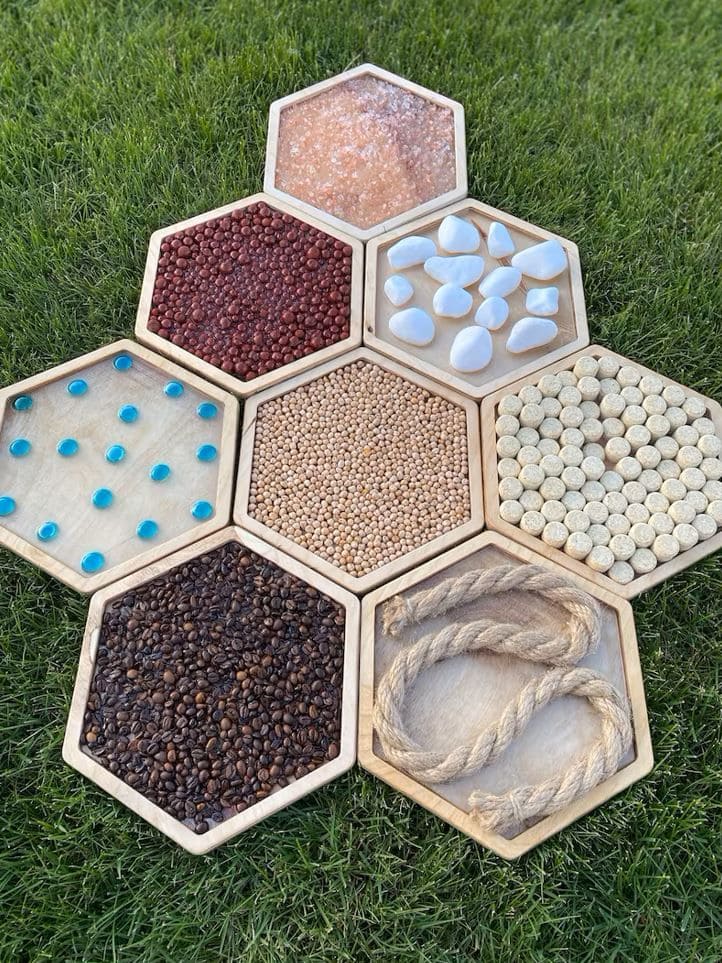
These sensory tiles create a hands-on way for kids to explore the world through touch.
Each hexagon holds a different material such as smooth pebbles, soft rope, crunchy beans, or grainy salt offering a diverse sensory journey for curious feet and fingers.
Perfect for barefoot walks, these tiles encourage balance, coordination, and mindfulness as children compare sensations like rough, cool, or squishy textures.
#17. Spider Web Sensory Bin
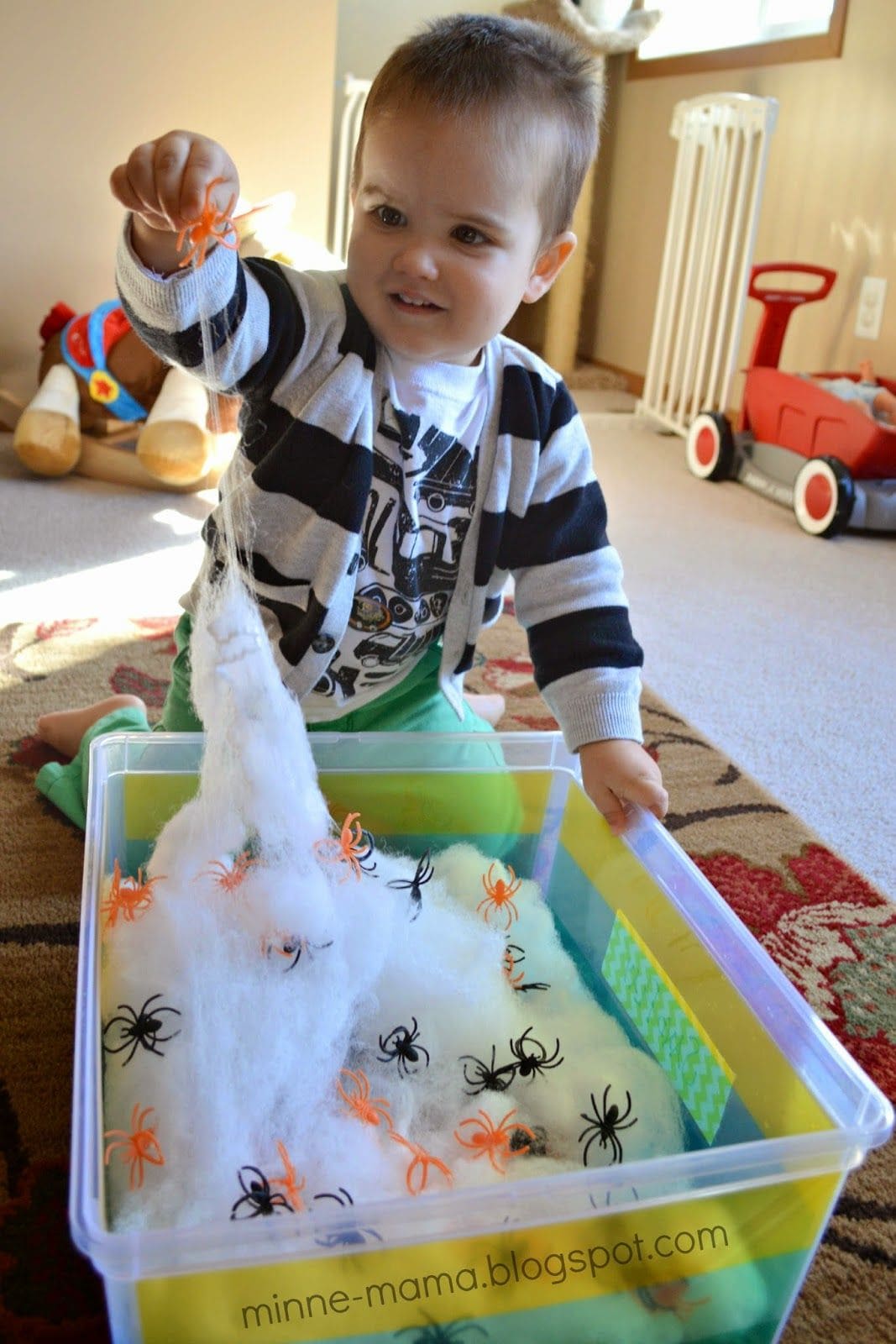
Using soft cotton or stretchy webbing, kids can explore textures while searching for colorful plastic spiders hidden within.
It’s the perfect mix of creepy and fun, encouraging curiosity and fine motor skills as little fingers pull, stretch, and dig through the web.
Bonus, the experience is both soothing and exciting, ideal for Halloween or any themed sensory day.
#18. Arctic Penguin Sensory Bin Adventure
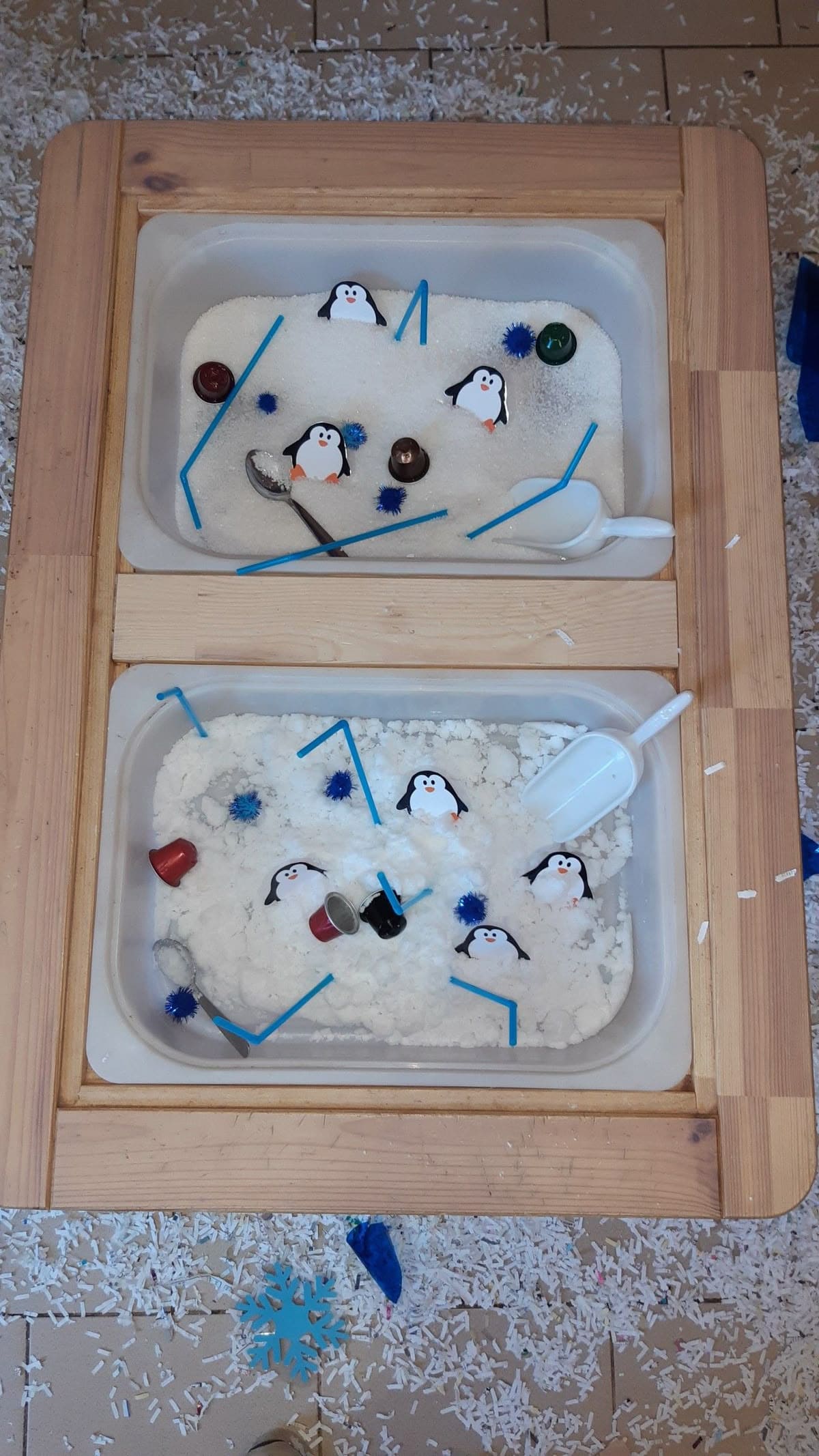
This winter-themed sensory bin invites little hands into a frosty world of imagination.
Filled with soft white materials resembling snow, it’s sprinkled with mini penguin figures, shiny pom-poms, and colorful straws to stimulate both touch and sight.
Children can scoop, pour, and dig using small spoons and cups, building fine motor skills while exploring textures and patterns.
#19. DIY Sensory Texture Floor Mat
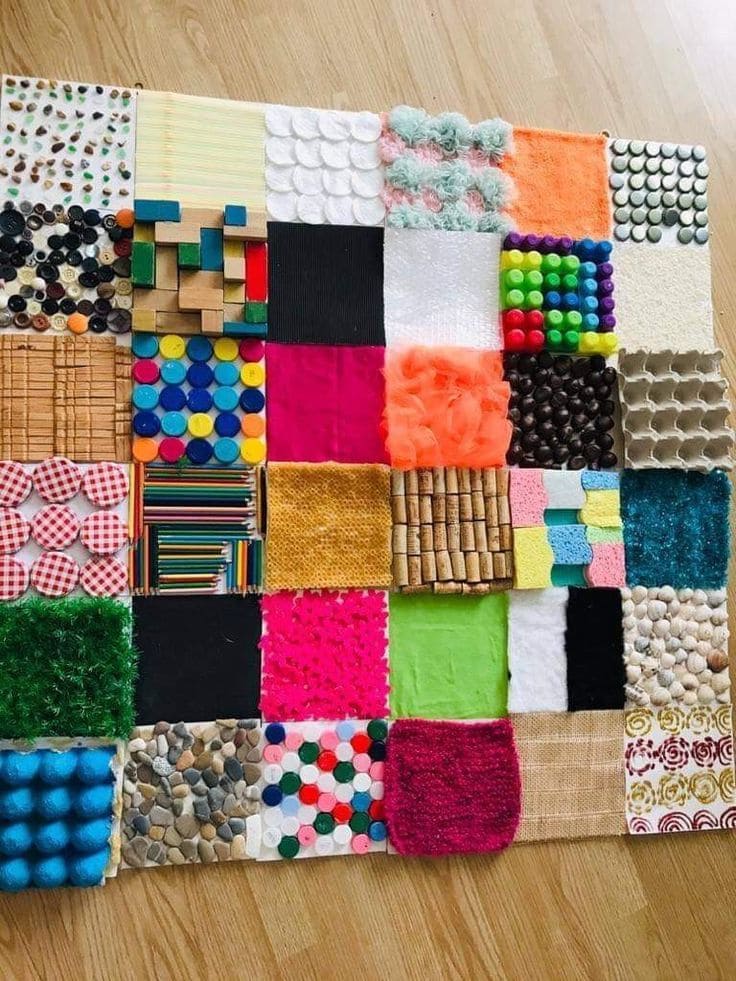
This DIY floor mat is a colorful playground for little feet and curious hands.
Each square offers a new world of touch, soft fabrics, bumpy bottle caps, smooth stones, rough corks, and fluffy sponges all create a multi-sensory journey.
As children crawl, step, or sit on it, they develop balance, coordination, and sensory awareness in a joyful, hands-on way.
#20. Sensory Wall Stair Adventure
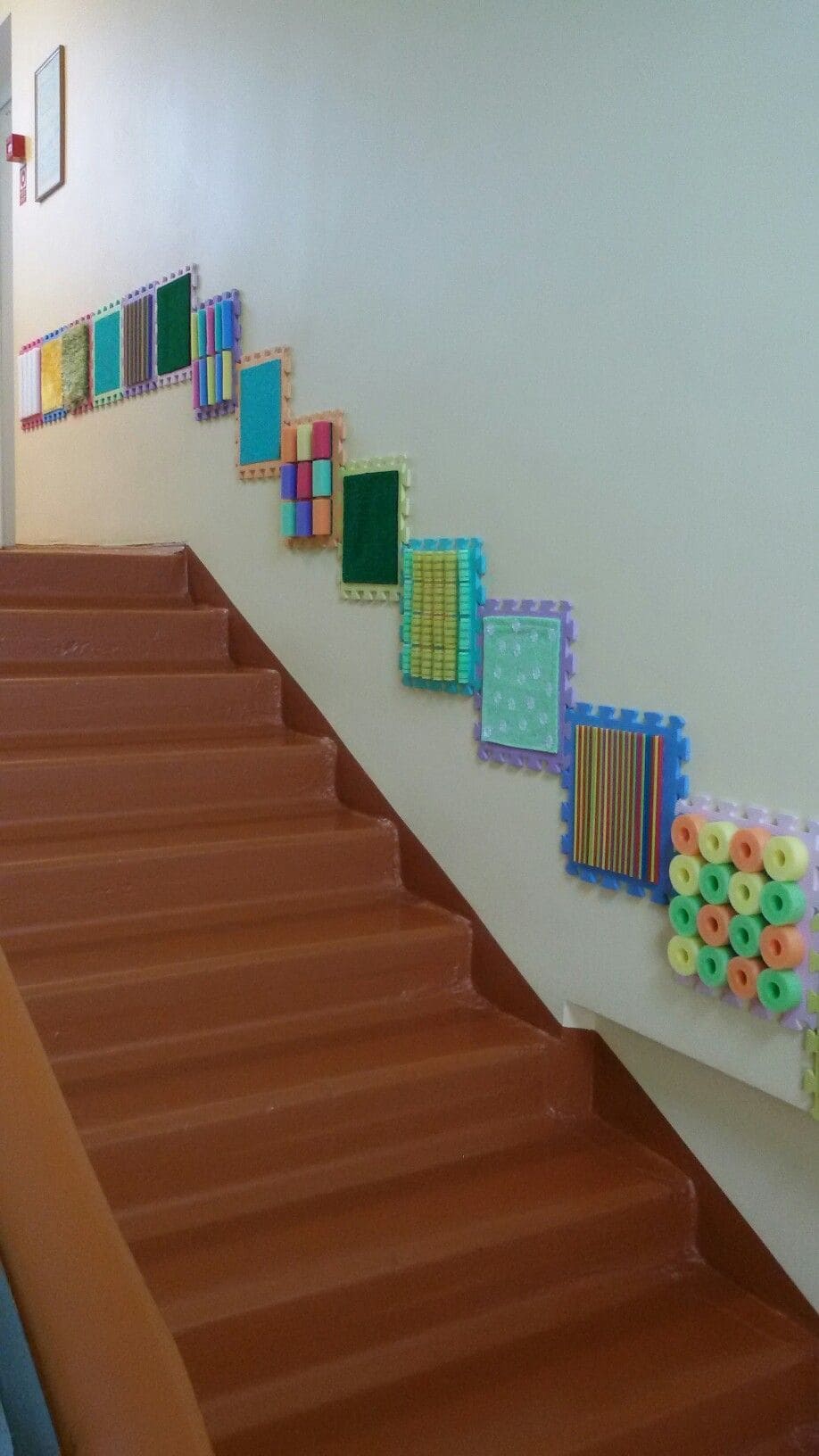
If your goal is to make transitions fun and educational, this sensory stair wall is pure brilliance.
Each textured square, made from materials like foam, sponges, grass mats, and straws, turns an ordinary staircase into a tactile playground.
Children can touch and explore different sensations as they climb, making movement both safe and stimulating.
Read more: 24 Easy Fall Leaf Craft Projects for Preschoolers and Kids
